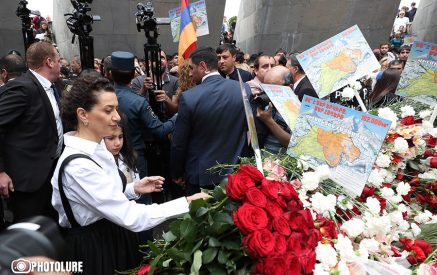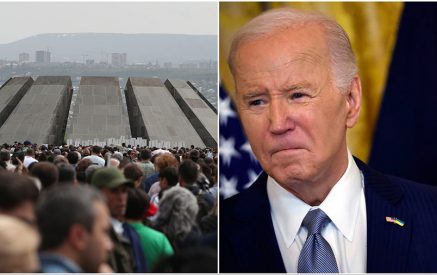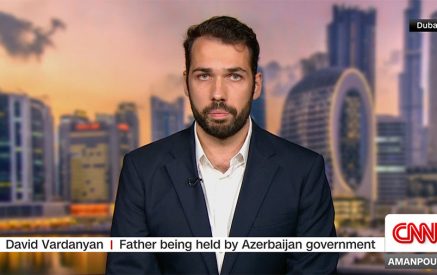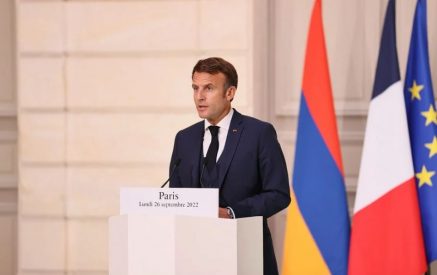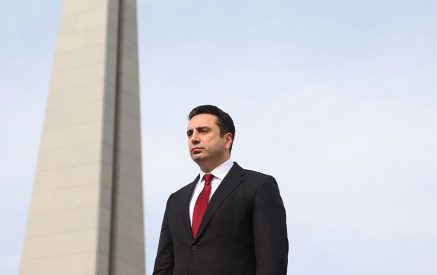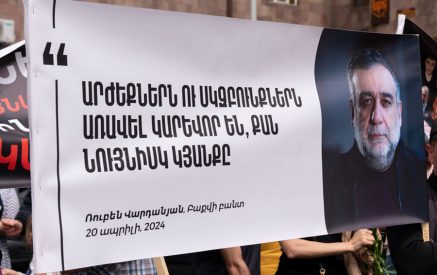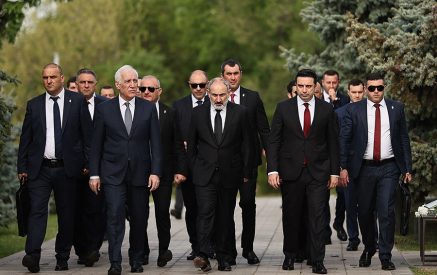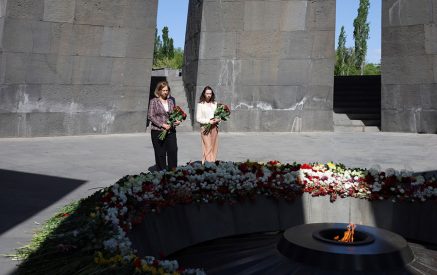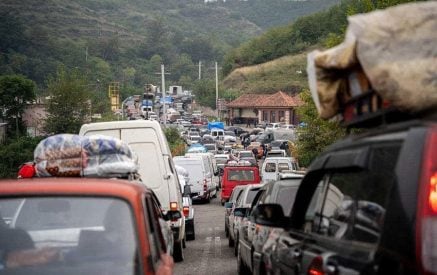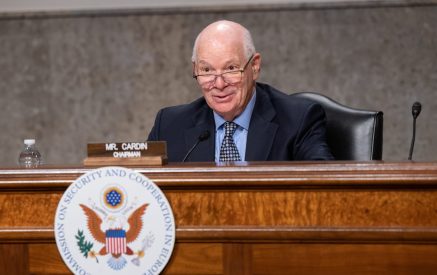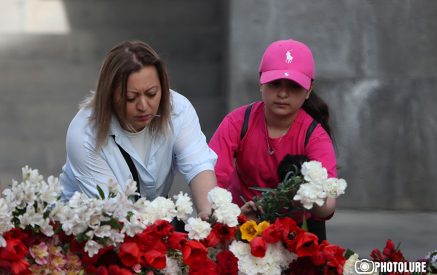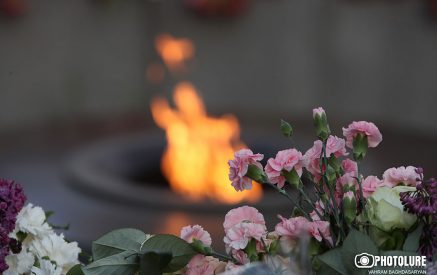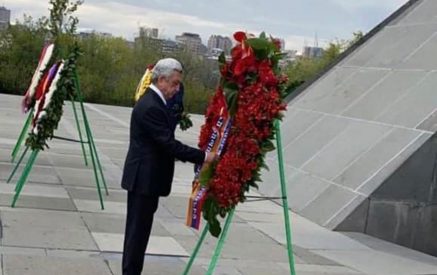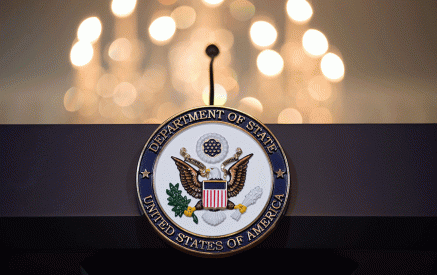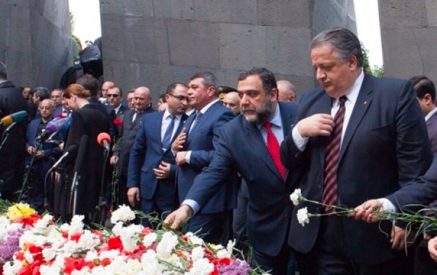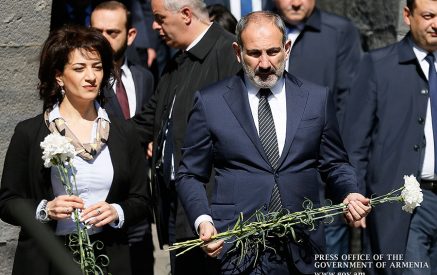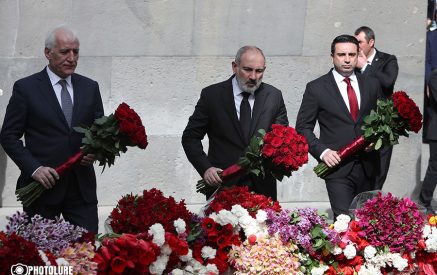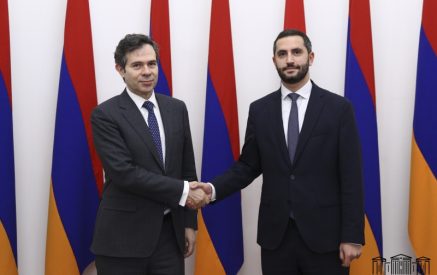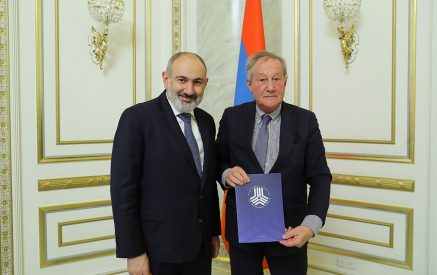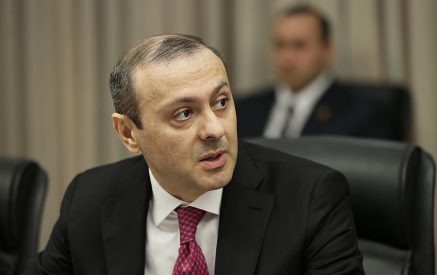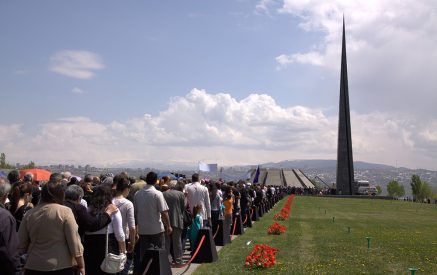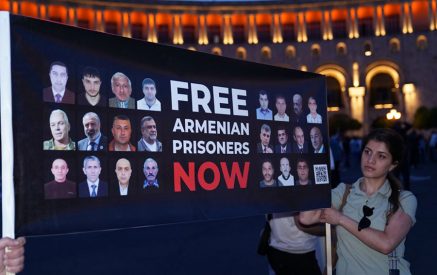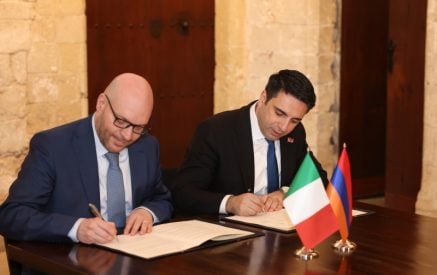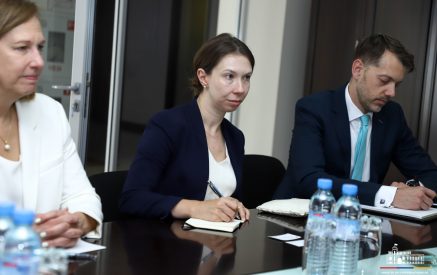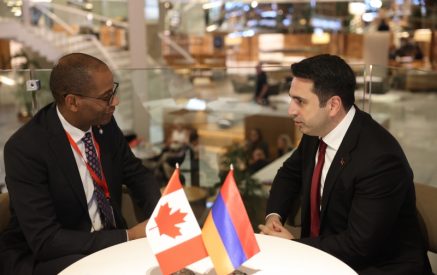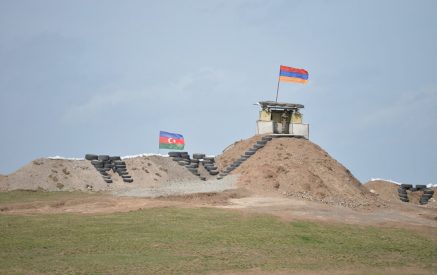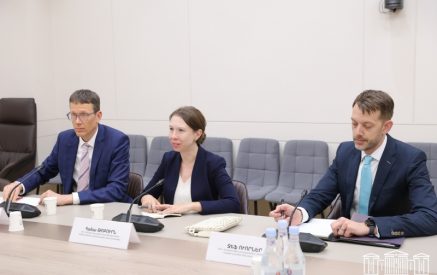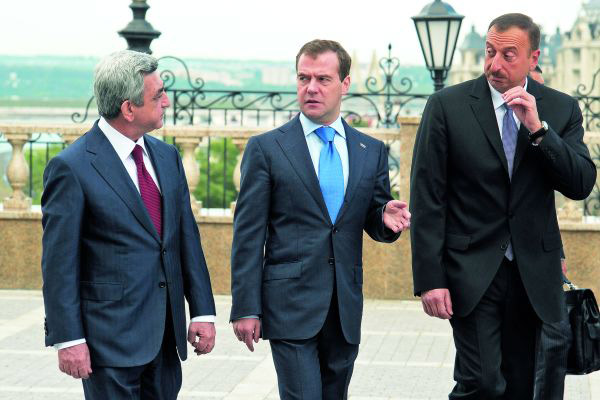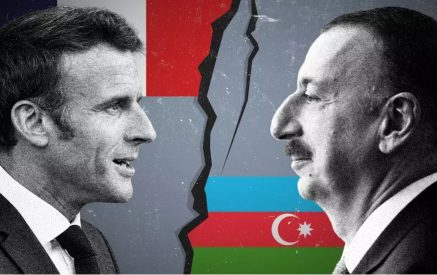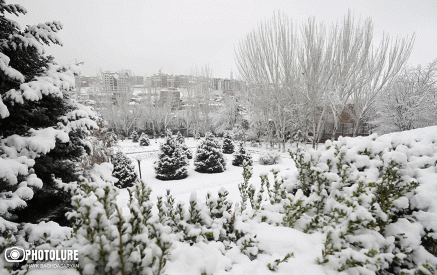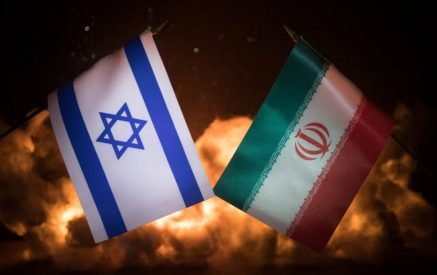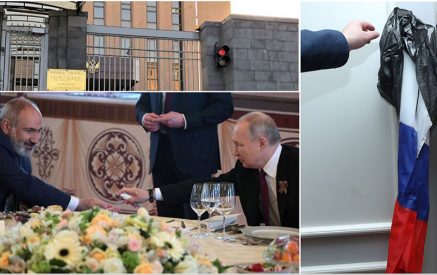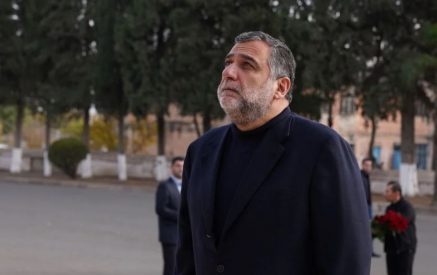Last week, after the cabinet meeting, Deputy Foreign Minister Shavarsh Kocharyan, in an interview with the journalists, spoke about the Kazan document, noting that essentially it is the same Madrid document with some amendments, “Since the document is not published, I can say that there are more positive developments for Armenia and Karabakh if we compare it with the Madrid document, I cannot say more. But one thing I can state that what is publicly given in the statements of the co-chairs are the same elements and principles.”
Since spring 2011, the Western press was widely covering the meeting in Kazan planned on June 25. The experts note that this meeting was the best chance to solve the problem appeared in the deadlock. Russian Foreign Ministry spokesperson, Alexander Lukashevich, has told The New York Times that Russian President Dmitry Medvedev had given a new impetus to the negotiations, “During the planned meeting in Kazan, Russia intends to persuade the parties to reach an agreement on basic principles of the settlement of the conflict, on which the talks are pending for more than five years.”
10 days prior to the Kazan meeting, at the hearing organized in the European Parliament, the OSCE Minsk Group co-chairs Robert Bradtke and Bernard Fassier were full of hope that the negotiations on the Nagorno-Karabakh conflict are gaining impetus, and it is very possible that the Kazan meeting will register a progress. French co-chair Bernard Fassier detailed that a 4-5 page document was put on the table with 14 basic provisions, “At various stages of the negotiations, either Armenia or Azerbaijan have expressed against the principles but during the last meeting in Sochi, we managed to report some progress, so to speak, verbal agreement, and we hope that it will be affixed in written form in the very near future,” said French co-chair.
On June 25, presidents of Russia, Armenia and Azerbaijan must take a decision in the upcoming Kazan meeting on the draft of the Nagorno-Karabakh conflict settlement, assured the Russian Foreign Ministry’s official spokesman Alexander Lukashevich. “The expectations are great. According to the reached agreements, it is assumed that the so-called full draft of basic principles of Nagorno-Karabakh conflict settlement will be considered during the upcoming summit.”
Read also
Serzh Sargsyan left for Kazan in “good mood”
“I am going to Kazan with an expectation for constructive talks,” – assured the President of Armenia Serzh Sargsyan to the journalists in Strasbourg 2 days prior to the talks. The document in Kazan, as he said, “of course is not what the document that the Armenian side was dreaming about” but “it gives a chance to give an undertaking to signing a basic agreement and the preparation work for the agreement.” “So if we meet constructive approach and if Azerbaijan does not come forth with new additional proposals I think we can expect positive results,” – said the President of Armenia.
A day before the Kazan meeting, in an interview with Euronews TV channel, Serzh Sargsyan noted, “The international community has always called on Armenia, Karabakh and Azerbaijan to give a final answer as to whether we are ready to move towards the solution based on these principles. We were told to immediately answer “yes” or “no.” This is the question which we must answer in Kazan.”
On June 23, President Serzh Sargsyan had a telephone conversation with US President Barack Obama by the latter’s initiative. The US President stressed the importance of the upcoming tripartite meeting of the presidents in Kazan. Serzh Sargsyan noted that positive results could be expected if in Kazan the Azerbaijani side displays constructive approach. Serzh Sargsyan had sent a message to French President Nicolas Sarkozy, noting that “there are moments in the history when the leadership of the state must show their people courage, wisdom and the ways to peace.” Sarkozy believes that “moment has come.”
A day before the Kazan meeting, Russian Foreign Ministry came up with a statement. “This meeting is called to play a role of a borderline in the NK conflict settlement process. We expect that Baku and Yerevan will respond constructively,” – said Moscow, expressing hope that Armenia and Azerbaijan will demonstrate a political will and finalize the discussion of the draft of the Basic Principles for the settlement of NKR conflict in Kazan.
A day before the Kazan talks, Russian “Kommersant” wrote about “the return of liberated territories and peace treaty”. According to the newspaper, a document was to be signed that contained the “road map” of unresolved Nagorno-Karabakh conflict over 20 years. The newspaper noted that only the signing of the document can prevent the resumption of hostilities in Karabakh itself. The source in Russian Foreign Ministry newspaper noted that “we have never been so close to the success.” One of the diplomats who was involved in the elaboration works of the document had told to “Kommersant” that it contains the Madrid principles with phase options and after signing, a peace treaty will be elaborated by the mediation of three co-chair countries. According to the newspaper, by the document the Armenian side were to return 6 regions adjacent to Karabakh as well as 13 villages of Lachin, the connection between Armenia and Nagorno-Karabakh were to be preserved and the security was to be ensured by the peacekeepers. “The peace in the Caucasus is in compliance with the radical interests of Russia, hence, we are going to continue our mediation activities as much as it is necessary,” – said the Kremlin in the newspaper.
Great pressures are exerted over Armenia and Azerbaijan to record a breakthrough in Kazan, wrote Reuters, adding that Presidents Obama, Sarkozy and Medvedev hope that the framework document consisted of 14 items will be signed in Kazan, which will lay the foundation for peace talks.
Yerevan accused Baku of Kazan’s fiasco
On June 24, in Kazan, the meeting of the Presidents of Armenia and Azerbaijan led by Russian President Dmitry Medvedev was conducted, which lasted more than 3 hours. However, the meeting resulted in the adoption of a joint statement, which said, “The heads of state approved the establishment of mutual understanding on a number of issues, the solution of which will promote the creation of conditions for the approval of the Basic principles.” The document said that the meeting participants have considered the course of the works for agreeing on the draft of Basic principles. After this meeting, Armenian Foreign Minister Edward Nalbandian informed that Kazan was not a breakthrough because Azerbaijan was not ready to accept the final version of the Basic principles proposed by the tri-chairs. It turned out that Azerbaijan had proposed approximately a dozen changes in Kazan. Thus, despite all expectations, the Armenian-Azerbaijani summit in Kazan by Russia’s mediation ended without result. In Kazan, it was expected from Aliyev and Sargsyan to adopt the “road map” on NK conflict settlement but as a result, the summit failed. The parties to the conflict agreed to the adoption of only a statement on “mutual understanding.”
The mediators are disappointed with results of the Kazan meeting, wrote the American The New York Times, “Dashed the hopes to record a breakthrough in the Nagorno-Karabakh conflict settlement, when Russia initiating the Kazan meeting announced that the presidents of Armenia and Azerbaijan have not reached agreement on the basis of the deal.” Armenia accused Azerbaijan of the Kazan fiasco. The Kazan meeting showed that Azerbaijan ignores the Deauville statement of the three presidents. Baku once again brought the peace process to a deadlock by demonstrating a non-constructive sentiment for the peaceful settlement of the problem thru negotiations. However, Baku accused Armenia after the Kazan talks. Elmar Mammadyarov expressed regret that no mutual concession on principle issues was reached in Kazan, “The reason is that the Armenian side demanded big concessions from Azerbaijan trying to damage the peace process which had commenced seven years ago.”
EMMA GABRIELYAN






















